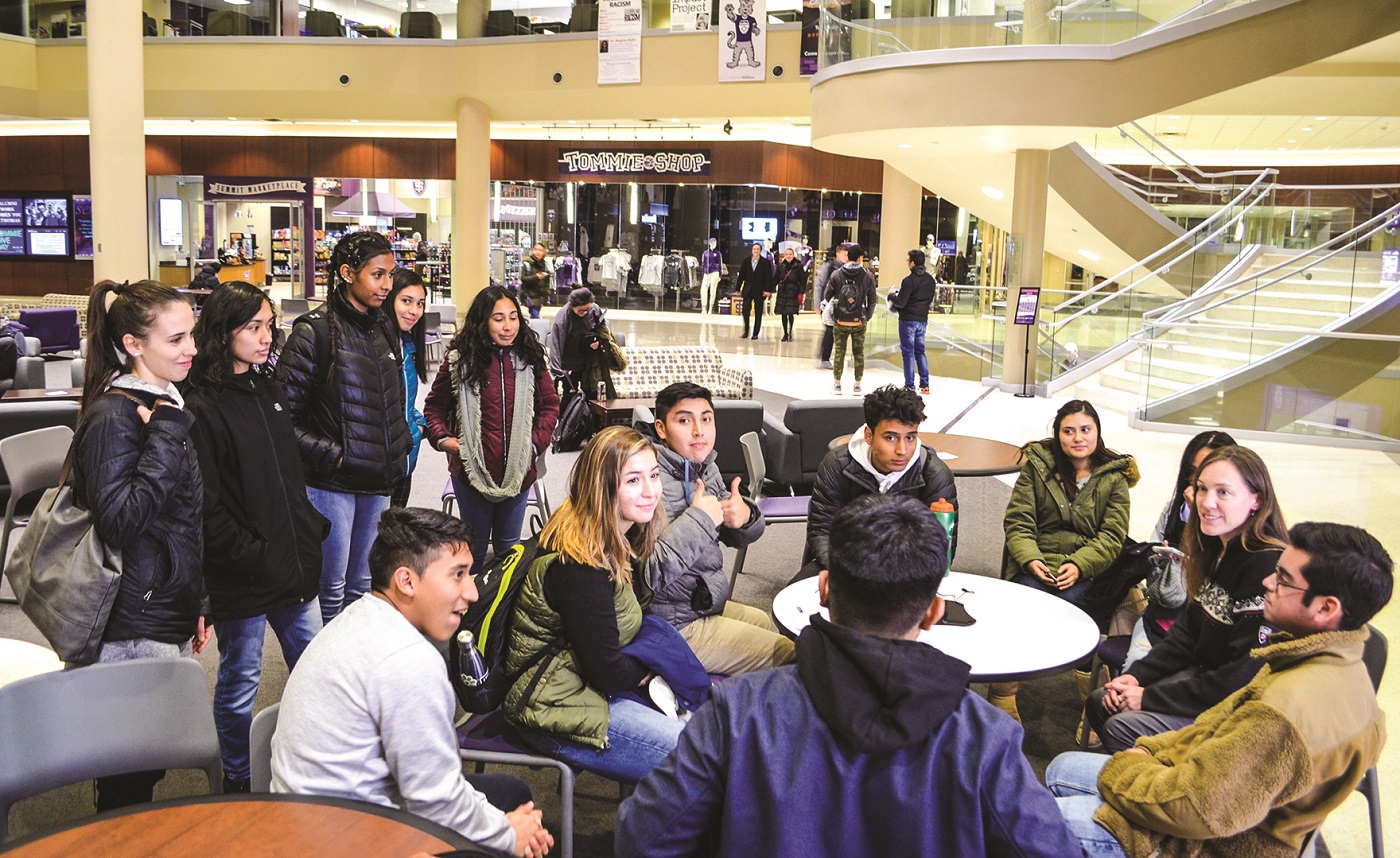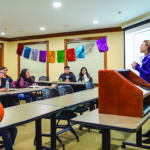In the Archdiocese of St. Paul and Minneapolis, there are currently 25 Latino parishes (defined as having at least one Spanish-language Mass on Sunday), with five more projected for the near future. According to a 2015 Pew study, the share of Hispanic American Catholics will likely continue to grow. Despite more millennials, including Hispanics, identifying as religious “nones,” among Catholic millennials as many are Hispanic (46%) as are white (43%). In many ways, the vibrancy of the U.S. Catholic Church, its ministries and cultural contributions rests on the ability of the Catholic Church and educators to form and educate Hispanics, and keep them connected to their Catholic faith and communities.
U.S. population growth estimates from 2018 census data predict a 20% rise in Hispanic population by 2030. It follows that Latinos will be playing an increasingly important role in the various business sectors, education, law and medicine. While training, academic degrees and credentials are vital to helping the U.S. and the Catholic Church navigate these demographic shifts, access to higher education and leadership formation remain out of reach for many Latino Catholics. National Hispanic ministry and religious education expert Hosffman Ospino notes that only 18% of Hispanics 21 and older have a college degree, and it is estimated that only 12.2% of more than 900,000 students enrolled in Catholic colleges and universities identify as Hispanic or Latino.
Seeing a growing need to help the local Archdiocese Latino youth aspire to higher education, in 2018 Father Joseph Williams, vicar for the Archdiocese’s Latino ministries, proposed expanding a partnership between Habiger Institute Latino Scholars and the Church of St. Stephen’s in south Minneapolis to support high schoolers in parishes who hope to pursue a four-year degree at a Catholic university, specifically with St. Thomas Catholic Studies. This discussion gave birth to Verso L’alto or, translated from Italian, “to the heights.” The name Verso L’alto was inspired by Blessed Pier Giorgio Frassati, whose quote “The higher we go, the better we shall hear the voice of Christ” exemplifies Frassati’s adventurous zeal and commitment to the Lord in every aspect of life.
Under the spiritual patronage of Blessed Frassati, Verso L’alto aims to help participants aspire to the heights of higher education and better understand their vocation. The first cohort was an auxiliary group from the Church of St. Stephen’s confirmation class. It generated immediate interest from the parish’s high schoolers and, due to its steady growth over the year, moved to the University of St. Thomas St. Paul campus and Center for Catholic Studies.
Now in its second year, the Verso L’alto program structure fosters the faith and intellectual development of Latino Catholic high schoolers, while helping them overcome the most significant obstacles to successfully earning a four-year degree from a Catholic university. Through the experience of building the Habiger Institute Latino Scholars, program coordinators know that in addition to overcoming financial obstacles, developing a sense of community and belonging for participating high schoolers is important to help mitigate Latino college student attrition. Verso L’alto focuses on building a faith-filled, supportive community of friendship along with offering college-life immersion and peer-to-peer mentorship. Fostering deep connection to an engaging spiritual and intellectual community helps them seamlessly springboard into university life earnestly, thereby setting them up for long-term academic and professional success. “Through Verso L’alto, I am becoming more active in a Catholic community, which is making me feel more connected in my faith life,” said Sugey, a current participant from St. Stephen’s parish.
Upon successful completion of the program, Verso L’alto participants accepted into St. Thomas have an opportunity to join the Habiger Institute Latino Scholars program which, along with continued academic, spiritual and professional formation, offers need-based tuition scholarships. “Verso L’alto helped me connect with current St. Thomas students before I even came to campus. I arrived with more confidence in my ability to succeed academically, socially and spiritually,” said Jennifer Nieto ’22, former Verso L’alto participant and current Habiger Institute Latino Scholar.
“Having been a Latino Scholar my four years of undergraduate, I have a special place in my heart for this program,” said Habiger Institute Latino Programs Coordinator Melina Sotro ‘18, ‘20 CSMA. “It is truly a gift for me to meet new students each year and watch them develop over the four years. I am able to invite them to experience the same holistic personal and leadership development that was so life-changing for me.”
| Participating Verso L’Alto high schoolers in the Archdiocese of St. Paul and Minneapolis typically apply to the program through their parish’s Verso L’Alto program liaison. Those interested in learning more about the program are welcome to contact the Center for Catholic Studies Habiger Institute. |










